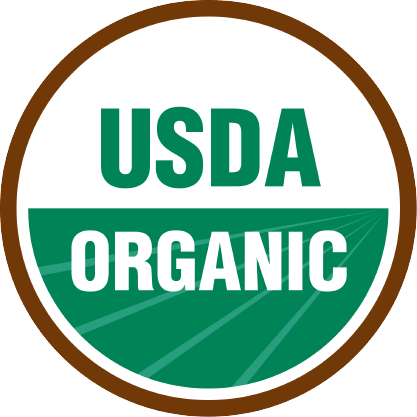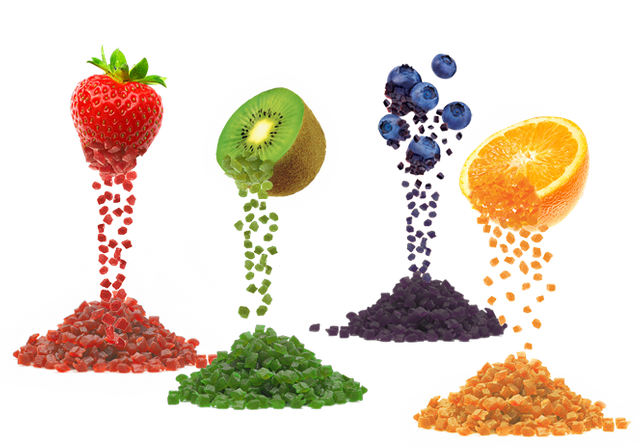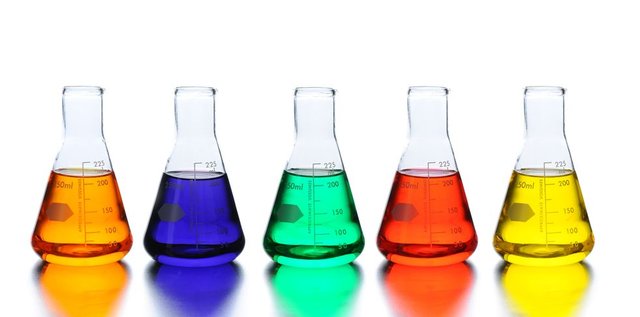Deceptive Food Labelling

Let's talk about the deceptive and totally scientifically-inaccurate nomenclature surrounding trendy "health food."
Disclaimer: I'm only here to talk about misnomers. Nothing I say here has anything to do with the quality or health benefits of different food categories.
This is something that has always annoyed me. This is something that might annoy you too even if your understanding of chemistry is limited to a single high school course. I'm going to talk about 3 common food labels or buzz-words that don't actually mean what the word itself means.
Organic

In the food industry, "organic" describes food that avoids pesticides, man-made fertilizers, growth regulators, livestock feed additives, etc. But what does "organic" actually mean?
If something is "organic", it simply means that it's derived from living matter. Every plant it organic. Every animal is organic. Every hydrocarbon is organic. It doesn't matter if pesticides, fertilizers or growth hormones were used. Everything you eat is composed of organic matter.
Natural

The term "natural" is used in a similar way in the food industry, though it's even less clearly defined and less regulated. Foods describes as natural have undergone a minimum amount of processing or treatment with preservatives.
If we define "natural" very broadly as anything that exists in nature, then everything (including all food) is natural. If we narrow the definition to exclude objects, compounds, etc. that were do not occur naturally and are only created by mankind then very little food is natural.
With a narrow definition, only the base ingredients and plants are natural. Even something using only "natural ingredients" is not a natural product. Bread doesn't come from nature, it comes from a baker.
Chemical Free

In the food industry, the term "chemical free" is used to describe foods that are considered safe, healthy, environmentally friendly because it only contains "natural" ingredients (there's that vague term again.)
This term is an outright lie. Nothing in the universe is chemical free. Chemicals are the building blocks of all matter.
Why Do I Care?
Language is made up of words; symbols that represent objects and ideas. But it only works when there's a shared agreement on the meaning of those symbols.
When words are hijacked for the sake of marketing, manipulation and politics, it muddies language and makes it more difficult to communicate. I don't want to live in a world where I can't use certain words without giving qualifiers and definitions.
Organic doesn't mean healthy.
Ironic doesn't mean unfortunate.
Anarchy doesn't mean chaos.
Words have meanings. Let's stick to them.
Good to see you back to posting. :)
I had an IP lawyer tell me that the phrase "To the victor go the spoils." really meant that the winner gets to tell the history in their favor. It seems that kind of linguistic hostile takeover is even larger today in labeling and anything the government can get its hands on.
I would propose children in elementary school should be taught rhetoric and that would stop a lot of the BS that big media, big business and politicians get away with.
Hey Greg, I'm glad to be back, and glad to see you're still following.
I don't know the source of this quote and I'm probably paraphrasing it so badly that it's unsearchable, but it goes something like this: "the battle for the souls of men will be the battle for the meaning of words."
I don't think bad food labelling is the most nefarious example, but it's definitely true that language and hijacking language is used to manipulate. Freeing people from bad definititions is often the first step toward freeing their minds.
And
Transparency doesn't means Truth.
Right
In the UK, foods are not allowed to be labelled as "organic" unless they have been certified by the Soil Association as having been grown and handled in accordance with defined organic standards.
Interesting, but not relevant to my point. Everything we eat is organic according to science. The food-labelling version of "organic" is the hijacking of a scientific term with a very specific definition.
I do get your point... though I see language as organic and fluid, not fixed or set in stone. It changes and develops with time and the effects of various influences. But I agree that the food industry often manipulates language for its own ends.
Language is fluid, of course. That isn't debatable. But there are cases where groups with agendas deliberately hijack words and terms for their own purposes. That isn't the natural development of language, that's manipulation.
help for help, follow me and I will follow you, vote by vote @sethlinson